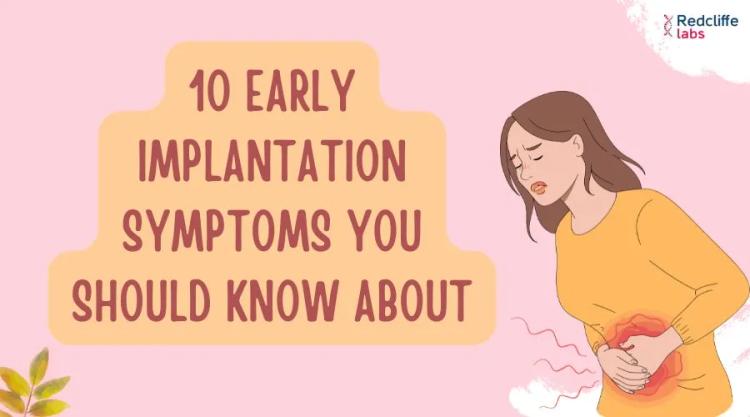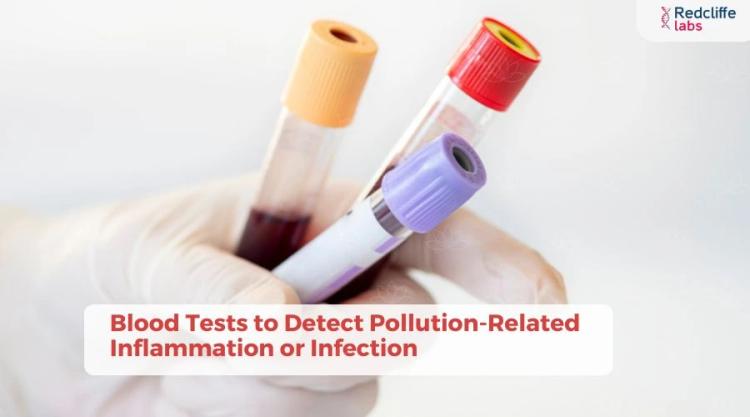Why is There a Higher Percentage Increase in Prevalence Among Younger Indians?

Medically Reviewed By
Dr. Geetanjali Gupta
Written By Sheena Mehta
on Dec 10, 2024
Last Edit Made By Sheena Mehta
on Jul 19, 2025

Regretfully, but truly speaking, India has become the “diabetes capital of the world.” It is predominantly because the country has witnessed a sharp rise in diabetes in teenagers and young adults.
According to the experts, the age dynamics of the disease profile are changing, which means it has engulfed the 16-year-old or the 25-year-old boy, making the situation equally risky for them as for their senior counterparts.
Additionally, this alarming trend needs more awareness, and early detection and lifestyle modifications are essential. Young people being diagnosed with diabetes is a multifaceted issue. It requires everybody’s involvement, from individuals to families to policymakers to healthcare professionals.
Today’s blog addresses the root causes of diabetes and emphasizes the need to adopt a proactive approach to safeguarding the health and future of India's youth. Even World Diabetes Day 2024, which had a theme of “Breaking Barriers, Bridging Gaps,” intended to spread awareness and take tangible steps towards reducing the risk of diabetes.
Diabetes: Let’s discover in detail
Diabetes is a chronic disease characterized by increased blood sugar levels due to a lack of insulin production (type 1), insulin resistance (type 2), or both.
Type 1 is always a hereditary condition and is diagnosed early in life. On the other hand, type 2 diabetes is often associated with lifestyle factors, such as poor eating habits, a sedentary lifestyle, and obesity.
Did you know?
India is home to around 77 million people with diabetes. These numbers are expected to double by 2045. Astonishingly, younger age groups are at higher risk.
6 General Symptoms of Diabetes
The most common symptoms for type 1 and type 2 diabetes include:
-
Frequent Urination (Polyuria): A condition when you pee more often.
-
Excessive Thirst (Polydipsia): A condition when you feel constantly thirsty despite drinking water.
-
Extreme Hunger (Polyphagia): It indicates a condition when you feel hungry even after eating.
-
Unexplained Weight Loss: When you lose weight without trying. It usually occurs when you have type 1 diabetes.
-
Fatigue. When you feel unusually sluggish or tired.
-
Blurred Vision: Unable to see clearly due to fluctuating blood sugar levels.
4 Key Reasons for Rising Diabetes Cases Among Young Indians?
Several environmental, behavioral, and genetic factors make Indians more prone to diabetes. Let's explore them in detail.
1. Sedentary Lifestyle
Young people engage less in physical activities due to urbanization. Lack of exercise leads to muscle cells losing their sensitivity to insulin and, subsequently, to type 2 diabetes.
Screen time has also reduced people’s interest in outdoor play and exercise. Whether for work, entertainment, or education, spending more hours in front of screens leads to resistance to insulin, and, subsequently, to type 2 diabetes.
2. Unhealthy Lifestyle Choices
The youth of India consumes high-calorie, processed foods. Sugary beverages, fast food, and soft drinks have effortlessly replaced fiber-rich foods containing high trans fats. These foods have no nutritional value and contribute to obesity.
Additionally, skipping meals and irregular sleeping patterns disrupt glucose metabolism. While smoking cigs can make your body less responsive to insulin and increase the risk of CVD diseases, excessive drinking adds empty calories and disrupts glucose regulation.
Nevertheless, many young individuals do not understand the importance of regular health checkups, which could identify warning signs like prediabetes.
3. Genetic and Environmental Factors
The diseases like diabetes are inherited diseases, which means they run in the family and, thus, put you at higher risk. For instance, South Asians experience type 2 diabetes. They are inherently more prone to insulin resistance due to genetic reasons.
Additionally, childhood obesity in India has doubled compared to the past decade, affecting more than 14 million children. Environmental factors such as air pollution and chronic stress have been associated with inflammation and insulin resistance. Due to inadequate access to safe recreational spaces, physical activity in cities is discouraged.
4. Lack of Awareness and Delayed Diagnosis
Early symptoms of diabetes, such as fatigue, frequent urination, itchy skin, blurry vision, and increased thirst, are often ignored. However, they need immediate attention. Type 1 symptoms are severe and appear quickly, while type 2 symptoms take time to develop. Hence, regular health checks and blood sugar monitoring are necessary, especially for those with a potential risk or family history.
Additionally, awareness campaigns targeting young people should be run at schools and workplaces. These campaigns can educate young minds about the symptoms and risk factors, including highlighting the importance of eating healthy and right, physical activity, and stress management.
4 Effective Strategies to Prevent Diabetes
The good news is that you can prevent or delay getting diabetes, especially type 2 diabetes. It is possible to manage diabetes and its consequences by following these preventive measures:
-
Engage in physical activity
Engage yourself in physical activity as much as possible. If your child is studying in a school, ensure that the school teaches him about the importance of physical education. It offers physical activities to help build his personality and make him physically strong.
Additionally, offices should incorporate wellness programs for young professionals to promote fitness through initiatives such as walking challenges.
-
Promoting Healthy Eating
It is one of the most effective measures to prevent diabetes, especially type 2 diabetes. Eat a balanced diet, such as leafy greens and non-starchy vegetables, to regulate blood sugar levels. Eating healthy and right also helps maintain body weight and reduce the risk of developing insulin resistance. Sugary beverages and junk food should be heavily taxed to minimize consumption among youth.
Additionally, comprehensive diabetes education should be provided to children in schools. Healthy promotion campaigns should emphasize the advantages of balanced diets containing whole grains, fruits, vegetables, and lean proteins. Relative social media influencers can effectively engage with younger audiences.
-
Regular Screening
Early screenings are the key for high-risk individuals, especially those with a family history of diabetes. Type 2 diabetes is not diagnosed at the earlier stages due to the mild symptoms or absence of symptoms. Regular checkups and early testing can detect the onset of diabetes and thus save the condition from becoming complicated.
Nevertheless, health camps and mobile clinics in rural districts of India can also encourage people to undergo early testing.
-
Mental Health Support
Stress management programs can help reduce the risk factors associated with diabetes. Relaxation exercises like meditation or yoga can also help lower stress.
The Growing Role of Technology in Diabetes Management
Technology is playing a vital role in revolutionizing diabetes management. It offers tools such as glucose monitors, insulin pumps, and smart pens that empower young people to take control of their health. These devices have the potential to provide a higher quality of diabetes care.
Conclusion
The rise in diabetes among Indian youth is much-talked-about. Hence, addressing the root causes and taking a proactive approach is a must to safeguard the health and future of young Indians. Let us commit to making healthier choices, and early detection is to be prioritized. An environment to be created for all, giving equitable access to healthcare resources, education, and preventive measures.
Collective action from people of all age groups is required to spread awareness and take tangible steps towards reversing the trend. After all, prevention is always better than cure.
A note from Redcliffe Labs!
Healthy India Ki Trusted Lab—Redcliffe Labs is one of the well-known diagnostic service providers in India. It is famous for its state-of-the-art, wide range of health tests, including blood, urine, and imaging diagnostics, catering to diverse medical needs.
Redcliffe Labs has garnered a trusted name in the healthcare industry for its commitment to accuracy, efficiency, and patient satisfaction.
4 Key highlights of Redcliffe Labs services:
- Home sample collection convenience
- Using cutting-edge equipment to provide reliable results.
- Offers health Packages at competitive prices.
- Skilled lab technicians and pathologists will oversee the testing process.
Also read: https://redcliffelabs.com/delhi/package/diabetes-test
Early and accurate detection allows for medical interventions and helps make timely lifestyle changes. It also reduces the risk of complications. Here are the commonly recommended blood tests for diagnosing and managing diabetes:
-
Fasting Blood Sugar (FBS) Test: It measures your blood sugar level after fasting for about 8-12 hours.
-
Postprandial Blood Sugar (PPBS) Test: This test measures blood sugar 2 hours after eating.
-
Random Blood Sugar (RBS) Test measures blood sugar at any time of the day.
-
The Glycated Hemoglobin (HbA1c) Test reflects average blood sugar levels over the past 2–3 months.
-
A lipid profile test helps check your cholesterol levels. It assesses heart disease risk, which is closely linked to diabetes.
-
Urine Tests: It helps detect early signs of kidney damage caused by diabetes.
-
C-Peptide Test: It distinguishes between Type 1 and Type 2 diabetes.
Book a blood and urine test for diabetes at home from Redcliffe Labs!
Call or download the Redcliffe Labs mobile app to book a diabetes test online. The phlebotomist will come to your doorstep with a blood sample collection kit, ensuring a painless and safe blood draw. Get the most accurate reports, typically within a time frame.
-
Go to the Redcliffe Labs website.
-
Search for the "Diabetes Test."
-
Click on the diabetes test. You will see details, including the test price.
-
Follow the prompts to book your test.
-
Complete the payment process.
Note: After booking, you will receive a confirmation via SMS and WhatsApp.
Additionally, for a urine sample collection, the expert will come to your home to collect the sample and submit it to the Redcliffe lab for analysis and report generation.
FAQS:
Q1: How can I reduce my blood sugar levels?
You can reduce your blood sugar levels by eating foods lower in saturated fat, sugar, and salt. Monitoring your food, drink, and physical activity is also essential. Additionally, stay hydrated.
Q2: What are the common symptoms of diabetes?
-
Urinating more often
-
Increased thirst
-
Lose weight without trying.
-
Feeling hungry all the time.
-
Blurry vision
-
Exhausted



